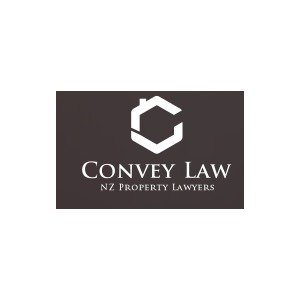Best Drugs & Medical Devices Lawyers in New Zealand
Share your needs with us, get contacted by law firms.
Free. Takes 2 min.
Or refine your search by selecting a city:
List of the best lawyers in New Zealand
About Drugs & Medical Devices Law in New Zealand:
Drugs & Medical Devices Law in New Zealand governs the regulation, manufacture, distribution, and use of pharmaceuticals and medical devices in the country. These laws aim to ensure the safety, efficacy, and quality of drugs and medical devices available to the public.
Why You May Need a Lawyer:
You may need a lawyer for Drugs & Medical Devices in New Zealand in situations such as filing a lawsuit for a defective medical device, seeking compensation for injuries caused by a drug, or navigating regulatory requirements for drug or device approval.
Local Laws Overview:
In New Zealand, drugs and medical devices are regulated by the Medicines Act 1981 and the Therapeutic Products Act 1975. The Ministry of Health oversees the approval and monitoring of pharmaceuticals and devices to ensure they meet safety and efficacy standards.
Frequently Asked Questions:
1. Can I sue a pharmaceutical company for a defective drug?
Yes, if you have suffered harm due to a defective drug, you may have grounds for a lawsuit against the pharmaceutical company responsible.
2. How are medical devices regulated in New Zealand?
Medical devices are regulated by Medsafe, a division of the Ministry of Health, under the Medicines Act 1981. Devices must meet safety and quality standards before they can be sold.
3. What should I do if I experience adverse effects from a drug?
If you experience adverse effects from a drug, seek medical attention immediately and consult with a lawyer to explore your legal options.
4. Can I import prescription drugs for personal use?
It is illegal to import prescription drugs for personal use without a valid prescription from a registered healthcare professional in New Zealand.
5. How can I report a suspected issue with a medical device?
You can report a suspected issue with a medical device to Medsafe, the regulatory authority for medical devices in New Zealand.
6. What are the penalties for selling unapproved drugs or devices in New Zealand?
Selling unapproved drugs or medical devices in New Zealand can result in fines, imprisonment, or other legal consequences.
7. How long does it take to get a drug approved in New Zealand?
The approval process for drugs in New Zealand can vary depending on the type of drug and the complexity of the application. It typically takes several months to years for a drug to be approved.
8. Are generic drugs regulated differently than brand-name drugs?
Generic drugs in New Zealand must meet the same safety and efficacy standards as brand-name drugs before they can be approved for sale.
9. Can I seek compensation for a defective medical device?
If you have been injured by a defective medical device, you may be able to seek compensation through a lawsuit against the manufacturer or other parties responsible.
10. Is it legal to buy prescription drugs online in New Zealand?
It is illegal to buy prescription drugs online without a valid prescription from a registered healthcare professional in New Zealand. Be cautious of online pharmacies selling counterfeit or unsafe products.
Additional Resources:
For more information on drugs and medical devices in New Zealand, you can visit the Medsafe website or contact the Ministry of Health for guidance.
Next Steps:
If you require legal assistance for Drugs & Medical Devices in New Zealand, consider consulting with a specialized lawyer experienced in this field. They can provide you with personalized advice and guidance based on your specific situation.
Lawzana helps you find the best lawyers and law firms in New Zealand through a curated and pre-screened list of qualified legal professionals. Our platform offers rankings and detailed profiles of attorneys and law firms, allowing you to compare based on practice areas, including Drugs & Medical Devices, experience, and client feedback.
Each profile includes a description of the firm's areas of practice, client reviews, team members and partners, year of establishment, spoken languages, office locations, contact information, social media presence, and any published articles or resources. Most firms on our platform speak English and are experienced in both local and international legal matters.
Get a quote from top-rated law firms in New Zealand — quickly, securely, and without unnecessary hassle.
Disclaimer:
The information provided on this page is for general informational purposes only and does not constitute legal advice. While we strive to ensure the accuracy and relevance of the content, legal information may change over time, and interpretations of the law can vary. You should always consult with a qualified legal professional for advice specific to your situation.
We disclaim all liability for actions taken or not taken based on the content of this page. If you believe any information is incorrect or outdated, please contact us, and we will review and update it where appropriate.
Browse drugs & medical devices law firms by city in New Zealand
Refine your search by selecting a city.

















